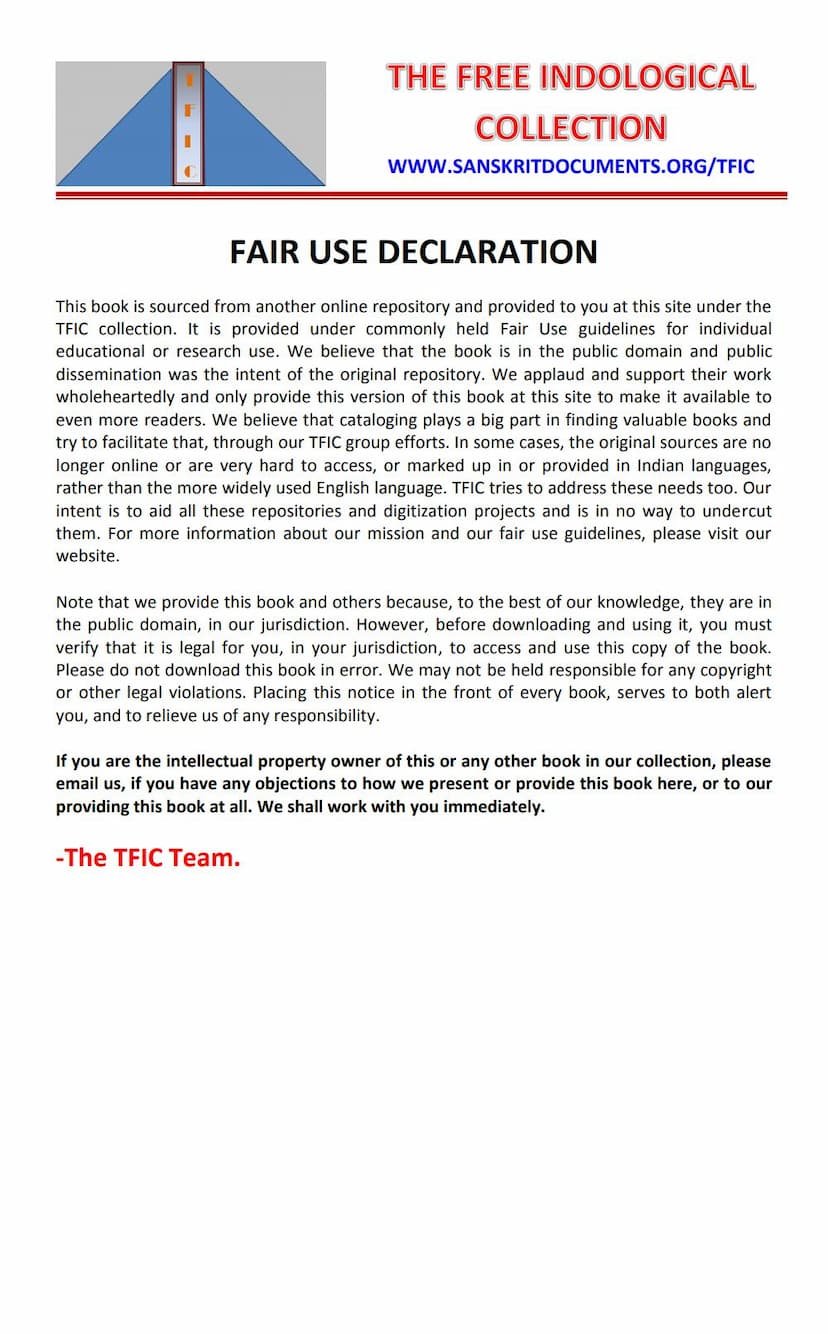Jain Kavya Sara Sangraha
Added to library: September 2, 2025
Loading image...

Summary
This is a summary of the Jain text "Jain Kavya Sara Sangraha" by Nathabhai Lallubhai Sha, based on the provided pages. The text appears to be a collection of Jain poetry and philosophical discourse, with a focus on devotional hymns (stavan) and narratives.
Here' s a breakdown of the key aspects:
- Title and Author: Jain Kavya Sara Sangraha (Collection of Jain Poetry Essence) by Nathabhai Lallubhai Sha.
- Publisher: Nathabhai Lallubhai Sha.
- Content: The book is a compilation of various Jain literary works, primarily focusing on devotional poetry and narratives related to Jain Tirthankaras and important figures in Jain history.
- Purpose (as stated in the preface): The author aims to publish texts that are easily understandable and accessible at a low cost, to promote the spread of knowledge (Jñana) for the benefit of spiritual seekers in the current era (Panchama Kala). The author expresses a desire to increase the growth of knowledge by making these texts available to many.
- Printing and Publication: The book was printed in Ahmedabad in Samvat 1838 (1882 AD).
- Fair Use Declaration: The introductory pages emphasize that the book is provided for personal educational or research use under fair use guidelines, believing it to be in the public domain. The goal is to make valuable books more accessible, especially those no longer readily available or presented in languages other than English.
- Content Highlights (based on the index and early pages):
- Invocations and Praises: The book begins with invocations to Jain deities and Tirthankaras, including auspicious verses (Mangalacharan) and praises for various spiritual masters and concepts.
- Narratives (Charitra): A significant portion of the text seems to be dedicated to biographical accounts (Charitra) of prominent Jain figures. The early pages mention the lives of great scholars like Shri Hemacharyaji, and the author intends to describe the lives of great men like Shri Ramchandra, Lakshmana, and Ravana, drawing from the lineage of the 20th Tirthankara, Shri Munisuvrata Swami. There are also descriptions of the lineage of the Ikshvaku dynasty and its rulers, including Lord Rishabhadeva.
- Devotional Hymns (Stavans): The book features numerous hymns and praises dedicated to various Tirthankaras (Shri Dharmanathji, Shri Neminathji, Shri Parshvanathji, Shri Mahavir Swami, etc.), Tirthankar Bhagwan, and other revered souls. These are often presented in a poetic, song-like format (like Gatha or Sawayya).
- Philosophical Exposition: There are sections that delve into Jain philosophy, such as the discussion of 'Panchama Kala' (the fifth era), the importance of 'Jnana' (knowledge), and the refutation of those who oppose the printing and dissemination of religious knowledge.
- "Jain Kavya Sara Sangraha" as a Title: The title itself suggests a collection of essential or "essence" Jain poetry, aiming to capture the core devotional and philosophical expressions.
- Structure: The book appears to be divided into sections or chapters, indicated by the "Adhyaya" (Chapter) numbers mentioned in the table of contents, covering various aspects of Jain philosophy, narratives, and devotional poetry.
- Key Themes:
- Jñana (Knowledge): The importance of acquiring knowledge is a recurring theme, presented as the primary means to attain spiritual liberation.
- Vairagya (Detachment): The text likely explores themes of detachment from worldly pleasures and attachments, a central tenet of Jainism.
- Devotion (Bhakti): The collection is rich in devotional hymns and prayers, reflecting a deep reverence for Jain Tirthankaras and spiritual leaders.
- Ethical Conduct and Philosophy: The narratives and verses likely convey moral teachings, principles of non-violence (Ahimsa), and the Jain path to salvation.
- Compilation and Accessibility: The author's intent to make these works accessible highlights a commitment to educating the Jain community and beyond.
The provided pages offer a glimpse into the nature and purpose of this collection, showcasing its religious, literary, and educational significance within Jain tradition. The extensive index and the beginning of the narratives suggest a comprehensive compilation of Jain devotional literature.